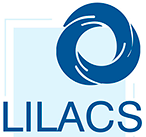Social representations of disability in people with chronic diseases and physical therapy students
DOI:
https://doi.org/10.19136/hs.a21n2.4063Abstract
Objective: To analyze the social representations of the concept of “disability” by people with chronic diseases who attend a rehabilitation clinic and students of the career in physical therapy, in order to know the commonsense socio-cognitive assessment from two complementary perspectives.
Materials and methods: A mixed method approach, based on the qualitative paradigm were use. The theory of social representations were used from the structural orientation of Abric. Participants were selected by purposeful sampling, with the collaboration of 134 people from México. Techniques to collect the information were free list and pairs comparison. Processual and structural analyzes were use.
Results: Most participants with chronic diseases base their social representation on experiences. The field of representation fixed on the deteriorated body and its interruption in daily life activities. Students in physical therapy base their representation on knowledge of the medical model for intervention, in addition to showing critical thinking regarding disability.
Conclusions: The findings can guide interventions based on educational models that make the patient an active agent in the process of recovering their health, to be included in the social environment.
Keywords: Disability; Social representations; Chronic disease; Students
Downloads
Published
Issue
Section
License
Copyright (c) 2021 Horizonte Sanitario

This work is licensed under a Creative Commons Attribution-NonCommercial-ShareAlike 4.0 International License.





























